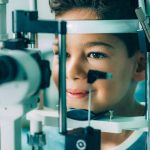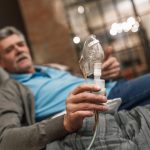
Children with “lazy eye” are more likely to become adults facing an array of serious health problems, a new study warns. Kids diagnosed with amblyopia are more likely to develop high blood pressure, obesity and diabetes as adults, researchers found. They also face an increased risk of heart attack, according to findings published March 7 in the journal eClinicalMedicine. “Vision and the eyes are sentinels for overall health,” said lead author Dr. Siegfried Wagner, a senior research fellow with the University College London Institute of Ophthalmology. “They are intimately linked with other organ systems. This is one of the reasons why we screen for good vision in both eyes.” Amblyopia occurs when vision in one eye doesn’t develop properly. As the brain ignores the weaker eye, that eye drifts out of position and tends to face slightly away from wherever a person is looking. As many as four in every 100 children have lazy eye, researchers said in background notes. It’s the most common vision condition in children. For this study, researcher analyzed data from more than 126,000 people ages 40 to 69 participating in the ongoing UK Biobank study. As part of their medical history, participants were asked whether they were treated for amblyopia in childhood, and whether they still had the condition in adulthood. They also were asked if they had been diagnosed with… read on > read on >


































-300x200.jpg)



